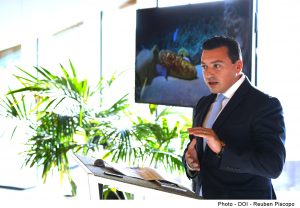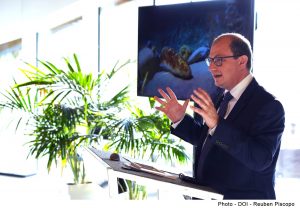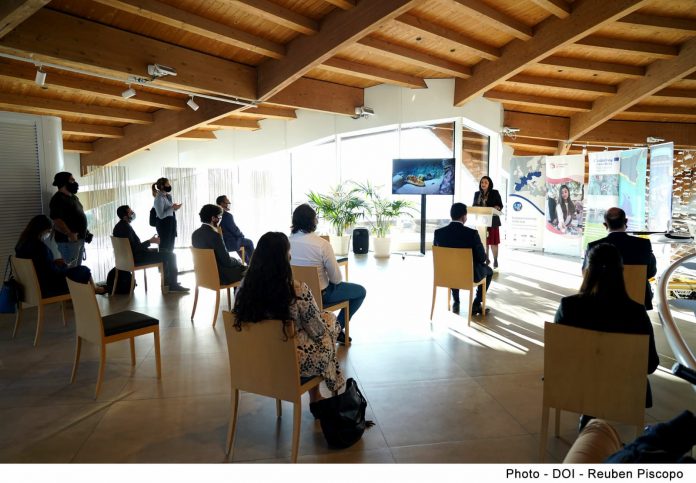An underwater CCTV camera is being deployed at the Malta National Aquarium by the University of Malta in order to enhance ongoing monitoring, reporting and awareness-raising efforts towards ecosystem protection.
This is the first such deployment in Malta and is in line with the EU’s drive in favour of innovative tourism as part of the Blue Growth strategy, as well as with ongoing ocean literacy and Natura2000 dissemination activities.
This was announced by Minister for the Environment, Climate Change and Planning Aaron Farrugia, Minister for Tourism and Consumer Protection Julia Farrugia Portelli and Parliamentary Secretary for European Funds Stefan Zrinzo Azzopardi during the launch of this initiative.
This project is part of the EU-funded HARMONY Italia-Malta project, which aims to protect marine biodiversity in the Italo-Maltese cross-border area.

Minister Aaron Farrugia said that the Environment and Resources Authority (ERA) is a part of the Interreg Harmony Italy-Malta project due to the strong links between marine environments and the sustainability of marine animals in our ecosystem.
“The main aims of this joint cooperation are to ensure that seabed integrity is safeguarded and to study the effects of phenomena which are responsible for the spread of non-indigenous species in our seas. Such initiatives are significant because, with scientific research in hand, we as policymakers are in a position to develop informed policies and future strategies for the benefit of our ecosystems and, ultimately, wellbeing for all. I am confident that through these efforts, more research and findings will lead to better management of our seas, having a positive spill over effect on our robust Blue economy, which is a sector of great importance for Malta,” Minister Aaron Farrugia said.
Minister for Tourism and Consumer Protection Julia Farrugia Portelli commended this initiative and said that the conservation of species and the marine environment is tied with the potential of diving tourism, one of the strong emerging markets of the Maltese tourism industry.
She mentioned that last year more than 4.8% inbound tourists were primarily motivated to visit Malta for scuba diving, and 178,960 took part in a diving experience whilst on the island.
She also briefly touched upon the experience offered by the Malta National Aquarium which, as a world-class tourism attraction, last year attracted 222,754 tourists. This commitment to quality continued during the pandemic, in which €600,000 were invested by the aquarium to improve the experience for its visitors.
She concluded that the project serves as an example of the concept of virtual tourism, through which Malta can showcase the best of what our islands have to offer to entice visitors in the post-pandemic times.

Parliamentary Secretary Stefan Zrinzo Azzopardi held that the collaboration of the three entities; the University of Malta, ERA and the Department of Fisheries and Aquaculture, led to the allocation of €600,000 from the INTERREG Italia – Malta. This project will provide us with further knowledge on the sea environment with the CCTV camera and other interventions, he explained. He said that the HARMONY project led to another project called CORALLO, which is co-financed with European funds, that contemplates the installation of further underwater CCTV hardware at some of the leading museums managed by Heritage Malta. “Projects like these, financed with European funds, provide us with the opportunity to learn and appreciate our country’s natural environment, especially our seas,” concluded the Parliamentary Secretary.
“We’re witnessing another first for the islands – bringing the submerged world to your office and living room. It’s a sign of redefining the user experience whilst getting with the times of convenience. This string of ocean literacy initiatives by the University of Malta is in total sync with the spirit of the UN’s Ocean Sciences Decade (2021-2030) and is catapulting Malta as a hub of ocean literacy good practice in the Mediterranean, and is also in line with Malta’s United Nations Security Council bid in 2022,” said Prof Alan Deidun from the Department of Geosciences at the University.










